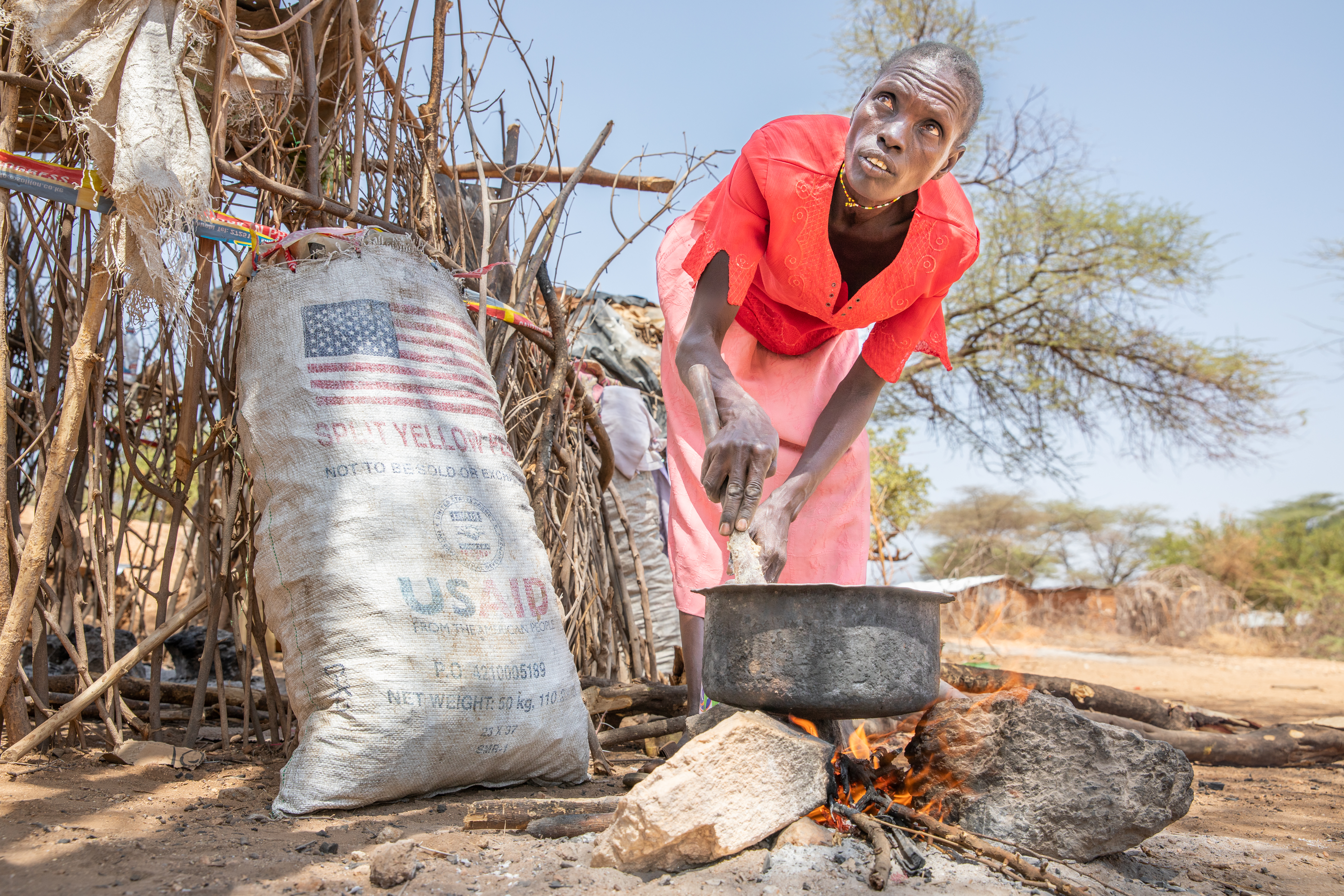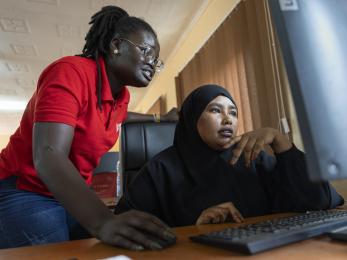Under the sun: From subsistence farmer to a growing agribusiness

Agriculture is the leading industry in Africa—employing approximately 65% of the labor force—and is imperative for improving food security and addressing hunger. Since smallholder farmers generate up to 80% of food across the continent, it’s vital for farmers to update their farming and business practices in order to improve rural livelihoods, increase access to nutritious food, and build resilience to climate change.
Bulole Kachwele Ntalaamu, a smallholder farmer in Mwanza, Tanzania, depends entirely on the crops grown on his small one-acre plot to feed his family and provide a marginal income from selling the extra crops. As a boy, he had learned farming methods from his father and relied mainly on manual irrigation to water his crops.
However, for Bulole, as for many smallholder farmers in rural areas, these practices have limitations. The lack of access to modern infrastructure and up-to-date practices and supplies often left Bulole unable to afford the nutritious food, school fees, and medicine his family needed.

In addition to the lack of mechanization and poor soil and climate conditions, Bulole also lacked access to information on updated agricultural methods that prevented him from growing his farm. He was at the mercy of seed sellers at local stores, who would charge him too much for seeds that had either expired or were not stored properly. He didn’t know what the most appropriate pesticides and fertilizers were for his onions, tomatoes, and pawpaws. As a result, his produce was often scarce and partially spoiled by pests. Bulole also did not have access to packaging and storing facilities to reduce post-harvest losses. Even when he had crops to sell, he didn’t know where and when to sell his harvest to get the best return for his crops.
Mercy Corps’ Energy 4 Impact program saw the challenges that low-income farmers faced across Africa and worked closely with farming communities to become more efficient and profitable. While acknowledging that traditional agricultural methods are resourceful, Energy 4 Impact provides mentorship and training on horticulture, business and financial management, as well as facilitating linkages and access to agricultural inputs and equipment suppliers, and new markets and financial institutions to help farmers improve their farming activities and livelihoods.
Watering crops with a bucket used to take up to 260 trips a day. One of his sons and two of his grandchildren would make the 100-foot trek to the outskirts of his farmland and back. The only other option was to use a pedal pump, which was labor-intensive and exhausting. Through financing plans arranged by Energy 4 Impact with suppliers, Bulole was able to buy a solar water pump after paying 30% of the pump cost using money that he raised from selling cattle. Solar irrigation was transformative for Bulole, who paid off the pump in just two months after selling his harvests.
“I can just switch on the system and keep my crops well-watered,” said Bulole. “My grandchildren are now free to pursue their school and only need to perform odd jobs around the farm after school hours.”
Bulole was one of 320 farmers in Mwanza, Simiyu, and Mara regions to participate in building more productive farms. In addition to receiving support to purchase the solar irrigation system, Bulole was introduced to buyers who have arranged to buy his crops next season. After a long period of dependence on unpredictable demand at local markets, Bulole will soon benefit from the security of having a guaranteed buyer in place. Bulole will have enough crops to meet the demand since he has tripled outputs from the acreage of his farmland as he now has a reliable supply of water for irrigation and can grow crops more than once a year.
“I’m now in a better position to help my children and grandchildren with their school fees and medicine when they fall ill,” said Bulole. “I’ve also made enough money to build a more comfortable and spacious concrete house on my farmland. Our lives have changed so much for the better.”
When farmers can earn a sustainable livelihood, they help to grow the community as well. From better and more varied food produce, improved household diets, to more job opportunities for local workers—smallholder farmers are vital in helping communities to thrive.



